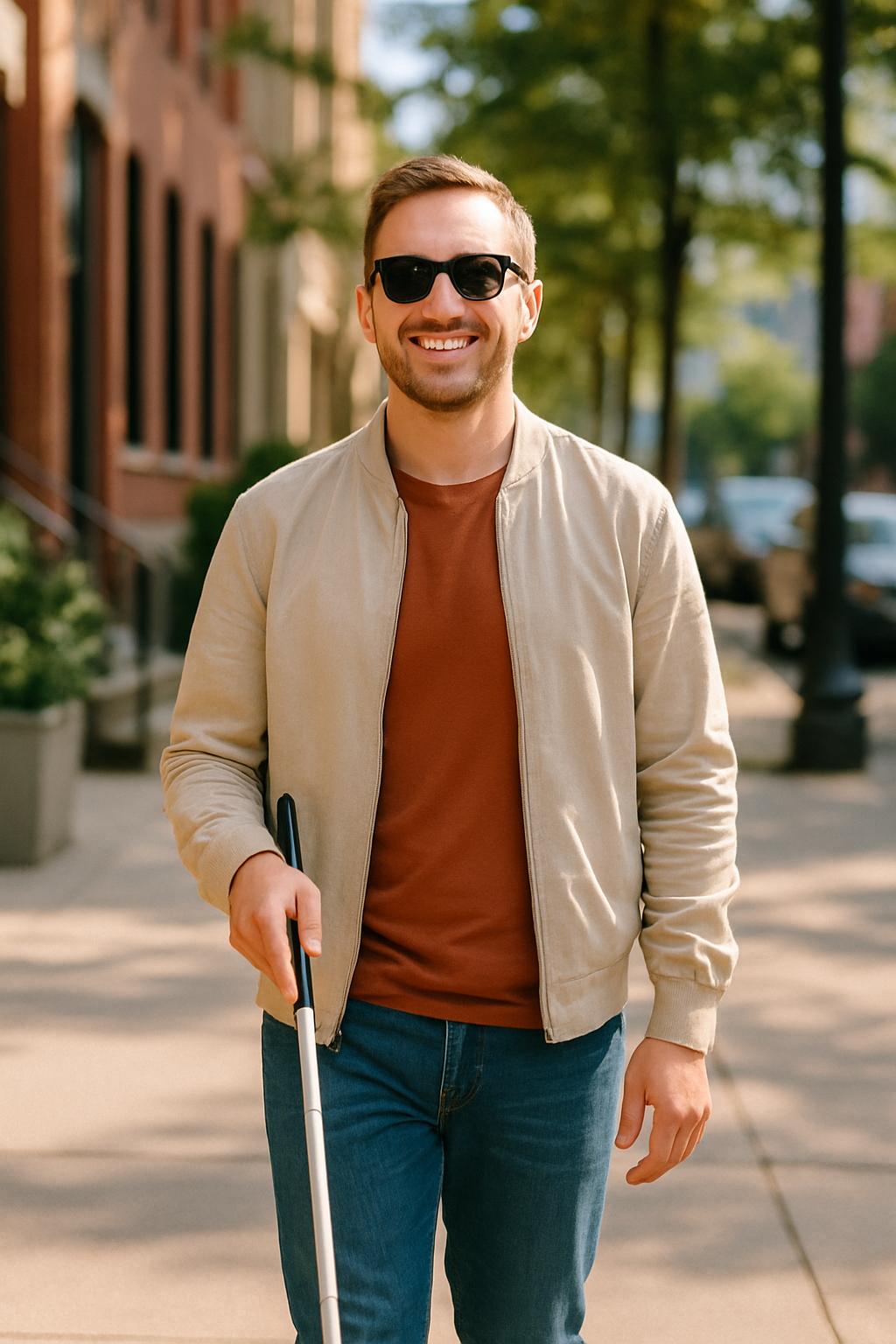Information on Blindness
Understanding Blindness

At the Arizona Center for the Blind and Visually Impaired (ACBVI), we believe that blindness is not the end of independence—it’s the beginning of a new way of navigating the world. Our goal is to help individuals, families, and the broader community understand that vision loss does not define a person’s potential, intelligence, or ability to thrive.
What Is Blindness?
Blindness refers to a range of visual impairments, from partial vision loss to total lack of sight. Some individuals are born blind, while others lose vision due to conditions like glaucoma, macular degeneration, diabetic retinopathy, or traumatic injury. Legally, a person is considered blind when their vision is 20/200 or worse in the better eye with correction, or when their visual field is restricted to 20 degrees or less.
But definitions alone don’t tell the full story. Every person’s experience with blindness is unique. Some may see light, shapes, or shadows. Others may have peripheral vision or progressive loss. At ACBVI, we work with individuals across this entire spectrum.
Living With Blindness
Living with vision loss brings challenges, but it does not limit the ability to lead a rich, independent, and fulfilling life. With the right tools, training, and support, individuals who are blind or visually impaired can work, raise families, travel, and enjoy hobbies.
ACBVI provides the services and skills training that make this possible. From orientation and mobility coaching to assistive technology, Braille literacy, daily living skills, and employment support, we offer a comprehensive path forward—one rooted in dignity, independence, and self-determination.
Common Misconceptions
Despite growing awareness, many misconceptions persist. Some assume those with vision loss cannot live independently, work effectively, or enjoy the same quality of life. Others may feel unsure how to interact or offer help. The truth is, people who are blind are just as capable as anyone else—with the same hopes, dreams, talents, and personalities. What they need isn’t pity—it’s opportunity, accessibility, and respect.
How You Can Support the Blind and Visually Impaired Community
- Use respectful language: Say "person who is blind" or "person with vision loss."
- Ask before offering help: Don’t grab someone’s arm or guide dog without permission.
- Support accessible spaces: Encourage inclusive design and technology in public and workplace settings.
- Learn and advocate: Get informed about ADA protections and how to foster accessibility.
ACBVI’s Commitment
At ACBVI, we’ve served Arizona’s blind and visually impaired community since 1947. Our mission is to provide not only direct services but also education, outreach, and advocacy. We’re proud to walk alongside our clients as they build skills, confidence, and independence—and to stand for a world where vision loss is met with understanding and opportunity.
Have Questions or Need Support?
Whether you’re newly diagnosed, supporting a loved one, or simply want to learn more, we’re here to help.
📞 Call us at (602) 273-7411 or contact us online to get started.